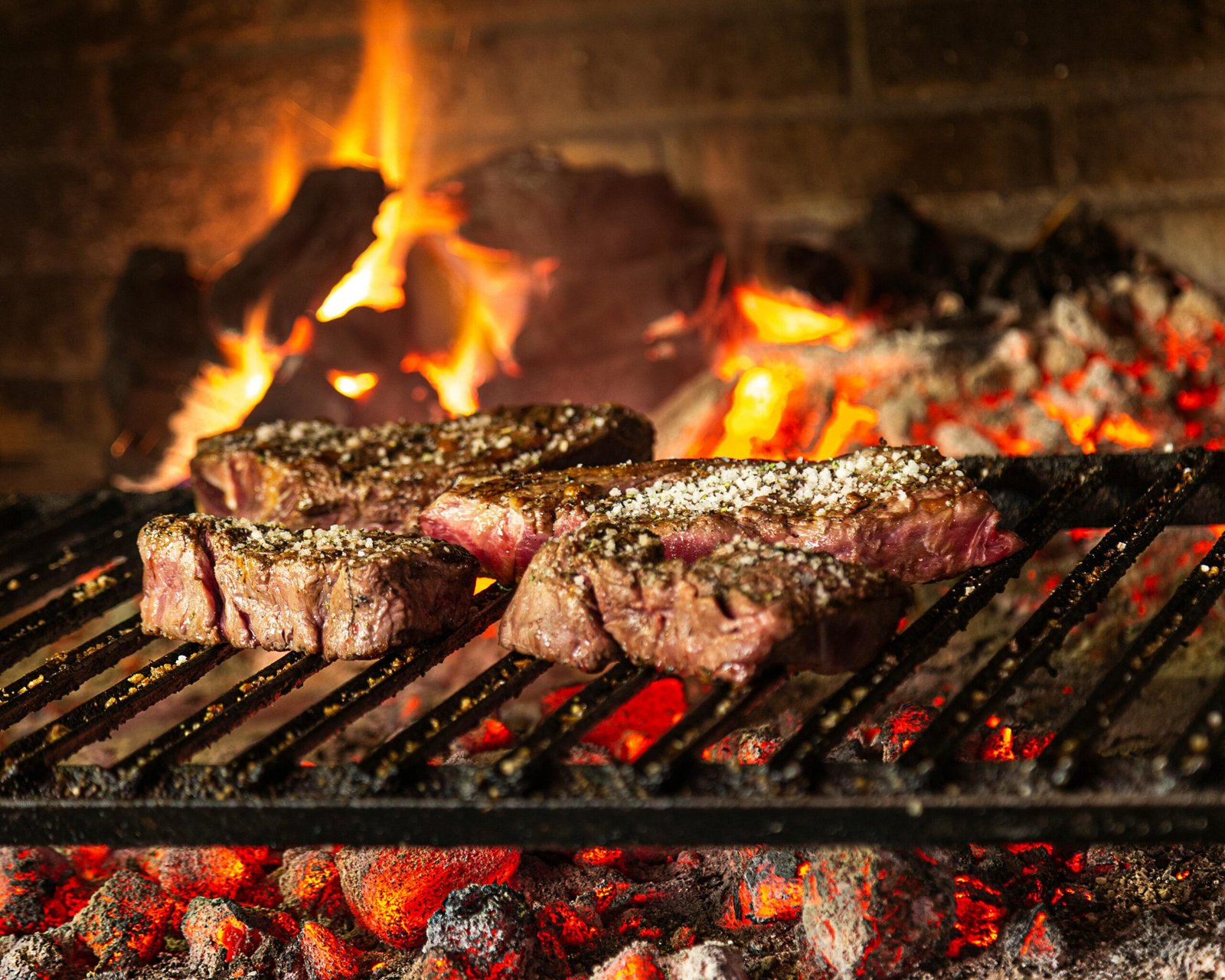Sizzling Steaks: Open Fire Grilling
Choosing the Perfect Cut: From Ribeyes to Filets
The journey to steak perfection begins with selecting the right cut. Each cut offers its own balance of tenderness and flavor, allowing you to tailor your grilling experience to your preferences.
- Ribeye: Known for its rich marbling and robust beefy flavor.
- Filet Mignon: Incredibly tender, with a mild flavor.
- New York Strip: Offers a balance of tenderness and flavor.
- T-Bone and Porterhouse: Perfect for a variety of textures and flavors.
Preparation: From Seasoning to Searing
Before the steak meets the flames, proper preparation sets the stage for a memorable grilling experience.
- Seasoning: Keep it simple with kosher salt and freshly ground black pepper.
- Preheat the Grill: Build a medium-high heat fire and clean the grill grates.
- Bring the Steaks to Room Temperature: Let the steaks sit for 30 minutes.
Grilling Techniques: Achieving the Perfect Sear
Grilling steak over an open fire is all about achieving that coveted sear while maintaining the desired level of doneness.
- Direct Heat Method: For thinner steaks, sear directly over the hot coals. Preheat the grill grate to around 450-500°F (232-260°C).
- Indirect Heat Method: For thicker cuts, start with direct heat for searing, then move to indirect heat for slow cooking. Aim for an indirect temperature of about 325-350°F (163-177°C).
Indirect Heat Grilling: Slow and Even Cooking
The indirect heat method for grilling steak over an open fire is particularly beneficial for thicker cuts. This technique allows for controlled cooking and prevents the exterior from charring before the interior reaches the desired doneness.
- Preparing the Grill Grate: Arrange coals for direct and indirect heat zones. Ensure the grill grates are clean and oiled to prevent sticking.
- Transition to Indirect Heat: Move the steaks away from direct flames for slow cooking.
- Monitoring and Flipping: Grill the steaks indirectly until they reach the desired internal temperature:
Use a meat thermometer get a digital one on amazon to check for the following doneness levels:
- Rare: 120-125°F (49-52°C)
- Medium Rare: 130-135°F (54-57°C)
- Medium: 140-145°F (60-63°C)
- Medium Well: 150-155°F (66-68°C)
- Well Done: 160°F (71°C) and above
Benefits of Direct and Indirect Heat Grilling for Steak
Direct heat allows for quick searing, while indirect heat ensures even cooking for thicker cuts, resulting in flavorful, juicy steaks.
Resting and Serving: Unleashing Flavor
Once the steaks reach your preferred level of doneness, remove them from the grill and let them rest before slicing and serving.
Final Tips for Steak Perfection
- Quality Matters: Invest in high-quality steaks for the best flavor.
- Experimentation: Try different seasonings and wood smoke flavors.
- Safety First: Use a meat thermometer for accurate doneness.
- Enjoy the Experience: Grilling over an open fire is about more than just the end result—it’s about savoring the process and creating memorable dining experiences.
